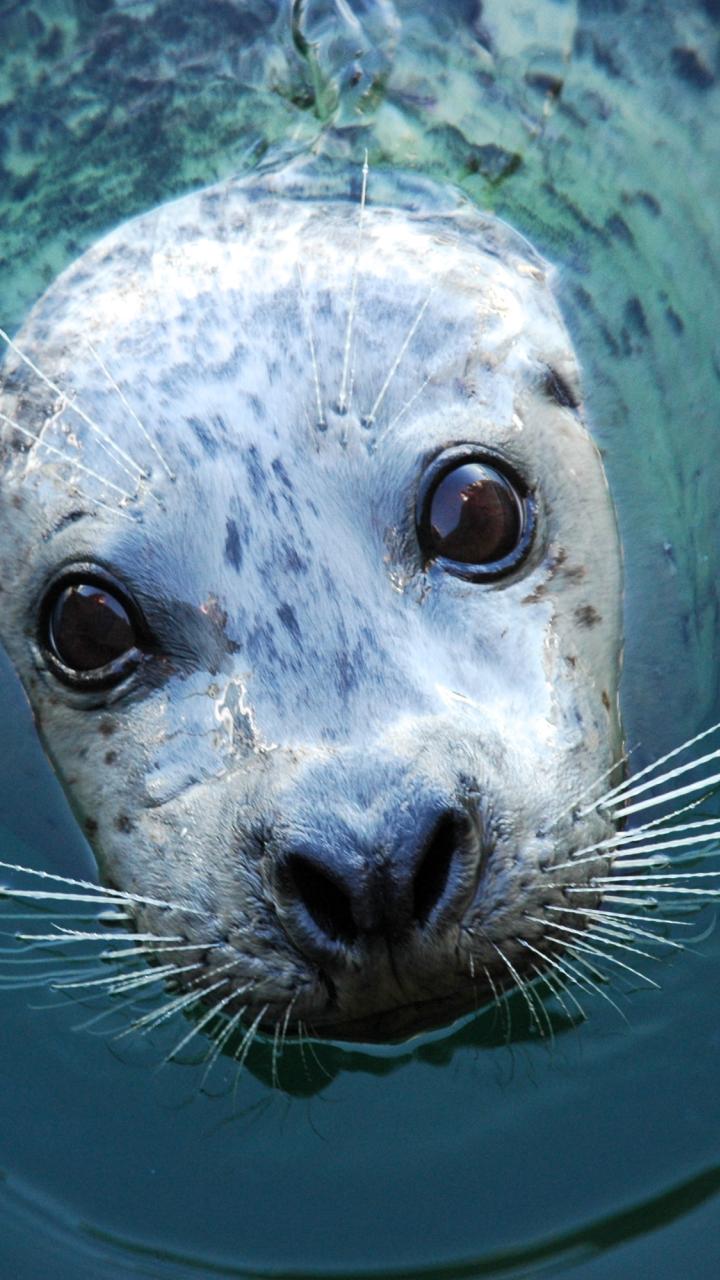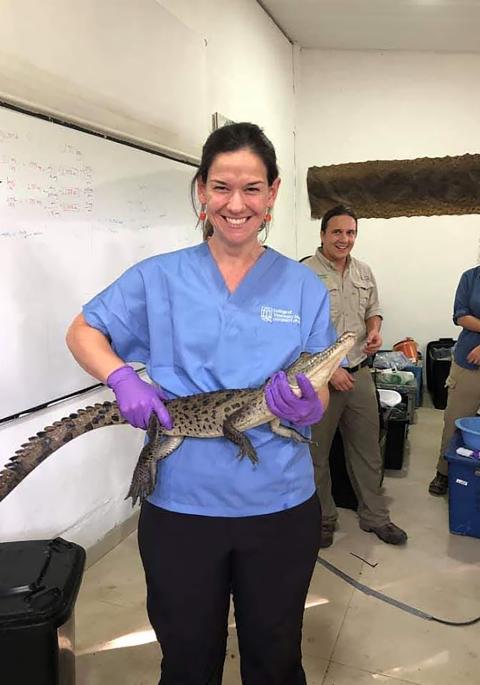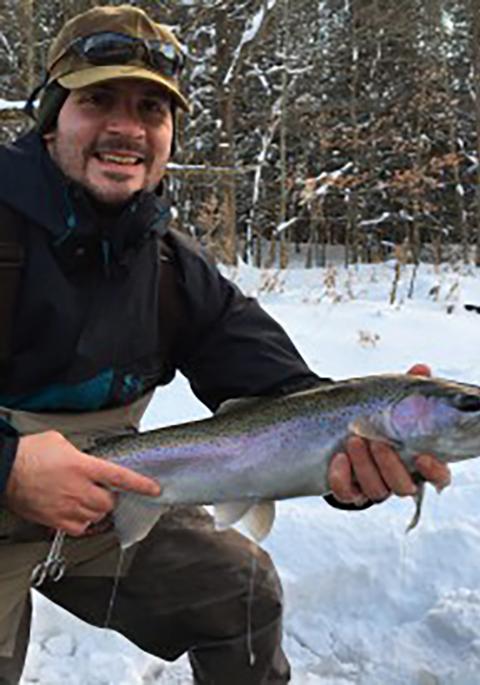From 2013 to 2023, stranding networks in the Mid-Atlantic Region documented deaths of 714 pinnipeds, 2501 small cetaceans, and 258 whales. In NY and NJ alone in the same decade, there were >150 large whales (including at least 83 humpback, 41 minke, 12 fin, 4 sperm, 2 North Atlantic right, 2 sei, and 1 blue whale) that either stranded deceased or died/were euthanized after stranding. These events have generally increased in recent years, with 2023 having the highest number of large whale strandings in the last decade; this period also includes three active Unusual Mortality Events declared for large whales in this region. Diagnostic evaluation of stranded marine mammals provides critical information on the causes of stranding and death, and can offer valuable insights into population and ecosystem health.
Since 2022, with funding from the John H. Prescott Marine Mammal Rescue Assistance Grant Program, Drs. Jenny Bloodgood, Beth Buckles, and Gavin Hitchener have been supporting the marine mammal stranding diagnostic investigations. They travel to large whale stranding events to assist with necropsy examination and sample collection, and provide histopathology services and ancillary diagnostic testing for stranded large whales, small cetaceans, and pinnipeds. Additionally, they offer training opportunities for the next generation of stranding responders, veterinarians, and pathologists, including bimonthly virtual pathology rounds and annual necropsy workshops. Increasing diagnostic capacity and training opportunities is expected to improve cause of stranding and death determinations and provide insight into marine mammal population health.





